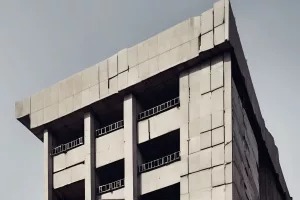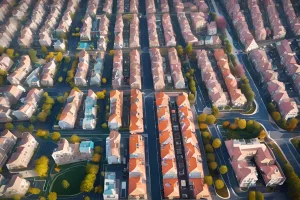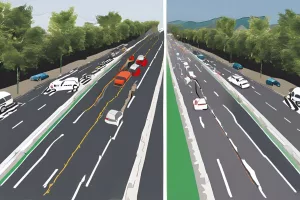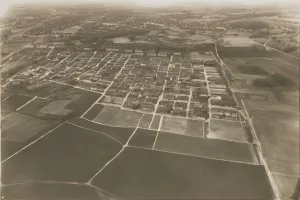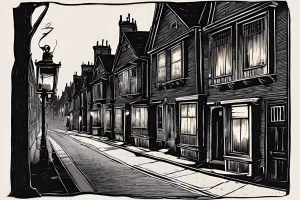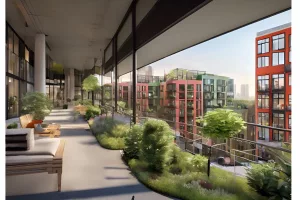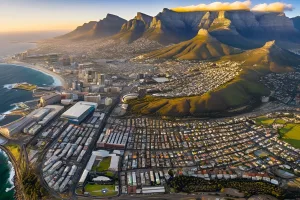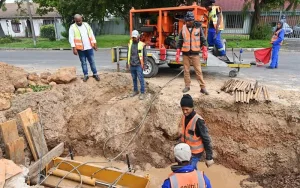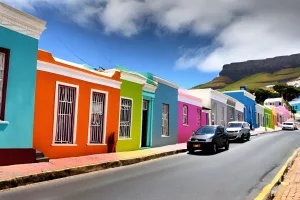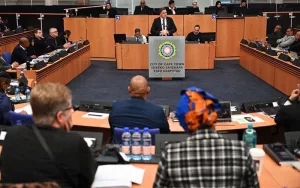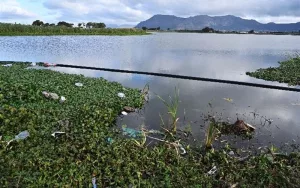Cape Town is gearing up for some water supply disruptions in neighborhoods like Sir Lowry’s Pass Village and Airport Industria on March 4. These interruptions are important for upgrading the water system, so residents should store water and keep taps closed to avoid any issues. Although the work might be a bit inconvenient, it’s necessary for a stronger, more reliable water supply in the future. The city encourages everyone to prepare and stay informed about the changes to manage the temporary challenges. Ultimately, these efforts will help ensure Cape Town remains a thriving place for everyone!
Cape Town’s streetlight program shines brightly as it manages over 245,000 lights, making the city safer and more inviting, especially during the festive season. The community plays a vital role by reporting issues and staying alert, working together to protect these lights from theft and vandalism. With a focus on sustainability, the city is switching to energyefficient LEDs, reducing its environmental impact while keeping streets welllit. This initiative not only lights up the city but also brings people together, creating a warm and safe atmosphere that showcases Cape Town’s beauty at night.
Inospace is set to transform the old Telkom building in Cape Town into a lively hub for logistics and data services. This exciting change will keep the building’s unique Brutalist style while making it more useful for quick deliveries. With its prime location near the Convention Centre, the future City Exchange will help meet the growing demand for efficient delivery solutions in the urban area. This project showcases how cities can blend history with modern needs, breathing new life into old structures while preserving their stories. Cape Town is ready to embrace this fresh chapter of urban renewal!
The future of urban development in South Africa is bright and focused on creating sustainable communities. With new policies and strong teamwork, leaders aim to tackle the challenges of rapid city growth, like the need for housing and services. At the National Urban Forum, important voices, including Minister Mmamoloko Kubayi, are coming together to share ideas and solutions. They are committed to shaping cities that are safe, resilient, and welcoming for everyone. Through research and collaboration, South Africa is determined to build a better urban future, learning from its past while looking ahead to what’s next.
Minister Mmamoloko Kubayi has a bright vision for the future of cities, where young people lead the way in making urban spaces better. She believes that with new ideas and teamwork, youth can tackle big problems like climate change and housing shortages. In her recent speech for World Habitat Day, she called for inclusive policies that bring everyone together, especially in South Africa where many are young. Kubayi’s plan also encourages research and collaboration, inviting students to help create smart solutions for our cities and rural areas alike. Her message is clear: by working together and thinking creatively, we can build a better future for all.
The Jip de Jager Drive upgrade in Cape Town is set to transform the busy road into a dual carriageway by February 2025, making daily commutes smoother for many residents. This project, celebrated by local leaders, aims to reduce traffic jams and boost the economy by connecting communities better. As construction progresses, the road will feature new lighting and markings, ensuring safety for all users. Ultimately, this upgrade is not just about improving traffic; it symbolizes hope and progress for a vibrant, connected future in Cape Town.
Cape Town is on an exciting journey to create more affordable homes for its people. The city plans to build over 680 social housing units in Lansdowne and Ottery, aiming to provide safe and decent living spaces for families. With the support of the Mayor, this project promises to bring hope and community spirit, making sure everyone has a place to call home. Through public involvement and smart planning, Cape Town is shaping a brighter, more inclusive future for its residents.
Maroela South is a community in Kraaifontein facing serious troubles. They lack electricity, forcing families to rely on expensive gas lights, while crime rates keep rising, leaving residents scared and vulnerable. Promises of new homes and power have been broken, with many still waiting for their turn to move in. Community leaders are frustrated, calling for better communication from Eskom, the electricity provider, which has failed to deliver on its commitments. This situation highlights the difficulties many South African communities face as they strive for safety and stability.
Cape Town is set to change the King David Mowbray Golf Course into a lively community space filled with homes, shops, and parks. This exciting plan covers 42.8 hectares and aims to make life better for everyone by providing affordable housing and improving public facilities. The project encourages walking and community gathering, moving away from the exclusivity of golf courses. With a focus on sustainable growth and careful planning, this redevelopment promises to create a brighter, more inclusive future for all Cape Town’s residents.
Cape Town is gearing up for an exciting property auction that will showcase 44 unique properties, from stunning beach lots to industrial sites. This event aims to boost the city’s economy and improve community services by reinvesting the money earned from sales. Alderman James Vos highlights the importance of these auctions in unlocking land for development, ensuring that both investors and local communities benefit. With diverse offerings across the city, this auction is a golden opportunity for growth and change in Cape Town.
Cape Town’s Annual BeachLowering Program is a special event that happens every year from October 1 to November 8. This initiative helps keep the beaches beautiful and safe by lowering sand levels, which stops sand from blowing onto roads and buildings. The program takes place at popular spots like Fish Hoek, Muizenberg, Gordon’s Bay, and Bikini Beach, ensuring there’s plenty of room for fun activities while protecting the environment. With this careful management, Cape Town’s coastlines stay vibrant and welcoming for everyone to enjoy!
The city’s water and sanitation systems are getting a fantastic makeover! With over 26,000 meters of old pipes already replaced, the improvements promise cleaner water and better waste management for everyone. This exciting project is not just about fixing pipes—it’s about creating a healthier future and a stronger community. Residents are feeling hopeful as their neighborhoods transform, showing that teamwork and smart planning can lead to a brighter tomorrow.
Cape Town has introduced a cuttingedge Pump Station Control Room that digitally monitors the realtime performance of the city’s water and sanitation systems. This innovation has revolutionized the city’s approach to infrastructure complications, providing swift deployment of repair teams and reducing false alarm response times by up to half. The initiative is part of a comprehensive approach to improving infrastructure, reducing environmental impact, and benefiting the community, with 75% of the infrastructure investment designated to assist lowerincome households and communities. Cape Town is paving the way for other cities in utilizing digital technology to enhance urban infrastructure and improve the quality of life for residents.
BoKaap, a vibrant and colorful neighborhood in Cape Town, South Africa, is facing the threat of an upcoming sixstorey development. Though the proposed height of the building has been downsized, the BoKaap Civic and Ratepayers Association is still strongly opposed to the project, fearing that it would disrupt the spiritual, social, and architectural harmony of the area and destroy its unique cultural identity. The ongoing dialogue between the developers, the BKCRA, and the local inhabitants highlights the need for balanced urban planning that respects and safeguards the histories and heritages that give cities their unique identities.
Cape Town’s Mayor Geordin HillLewis presented a comprehensive advocacy agenda focused on law enforcement, passenger rail services, affordable housing, and economic development, reflecting the city’s commitment to improving the lives of its residents. Specific proposals include municipal police investigative authority, a transfer of responsibility for train services to the city, and the release of national megaproperties for affordable residential units. HillLewis’s agenda is a canvas of positivity, potential, and wellplanned development, reflecting the city’s commitment to embracing change and innovation.
Spearheading Eco-Conservation: The Dynamic Role of Waste Interceptors in Aquatic Channels
Waste interceptors are costefficient tools that trap floating rubbish and debris in urban aquatic channels, ensuring a cleaner and healthier ecosystem. The city of Cape Town has successfully installed eight waste interceptors in rivers and water channels, showcasing its dedication to environmental conservation. The interceptors are designed using a simple mechanism and are adaptable to a range of waterways, making them an effective solution for litter control. The city’s continued commitment to maintaining and cleaning the interceptors highlights its resolve to improve water quality and safeguard longterm ecosystem health.



